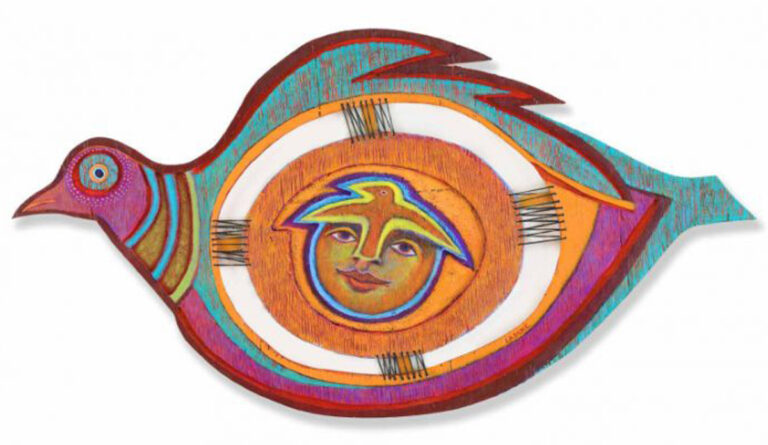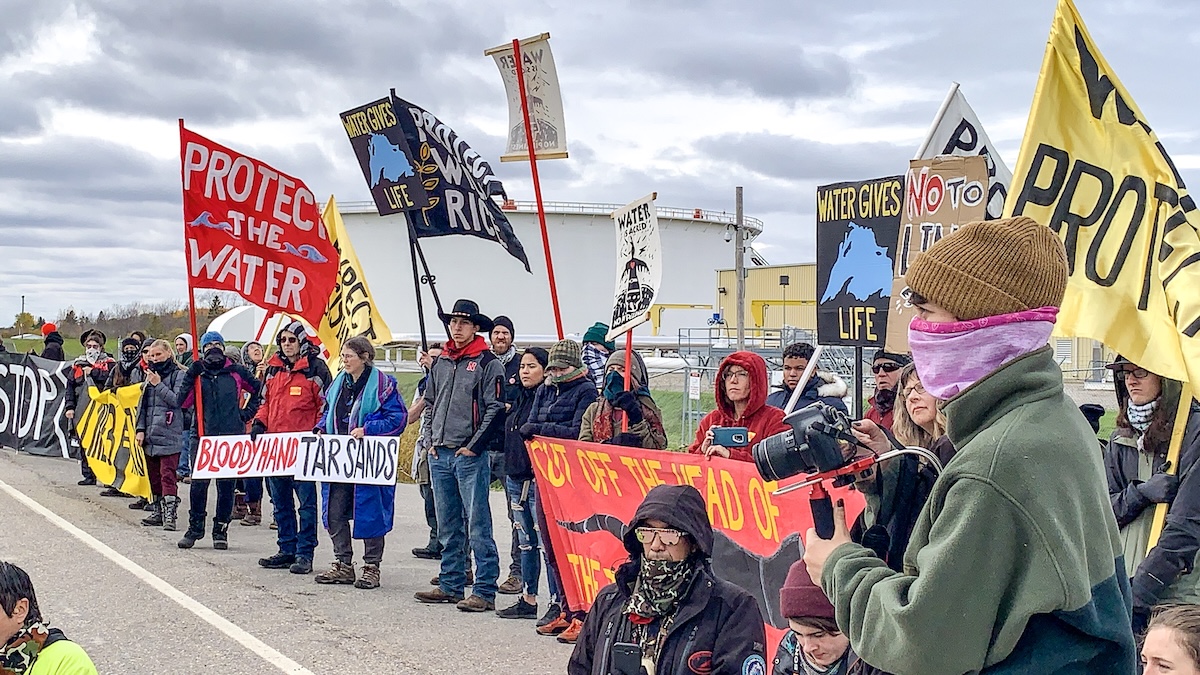Toward the end of June, weeks into ongoing protests against police brutality and systemic racism, Pamela Chandler felt compelled to vent to her husband, Walter.
The couple live in the small town of West Carrollton, Ohio, with their toddler, Jasmine. Scrolling through Facebook that evening, Pamela, who’s white and whose husband is Black, was disheartened to see so many people misinterpreting the protests and what the Black Lives Matter movement is really about.
“I jumped offline and started complaining to Walter that I was frustrated that so many people just didn’t get it,” she told HuffPost. “I grew up in a small town that leans conservative. They are wonderful people but not always well informed on issues that plague minorities.”
Walter and Pamela, who’ve been together seven years, wondered if there was a way to change that.
“We ended up sitting down together and came up with a quick list of just some of the everyday things we encounter that a lot of people just aren’t aware of,” Pamela said.
The list, which they say only scratches the surface of their experiences, ended up opening the eyes of not only their Facebook friends, but countless others. The post quickly went viral on the social media site, with more than 128,000 shares and 125,000 reactions.
“We’ve received thousands of messages from around the world of people sharing the exact same stories,” she said. “It resonated because this is a familiar story.”
Pamela, who blogs at The Chandler Family Crew, wrote in the post about how even simple tasks like driving somewhere are overly complicated by race: “I have to drive basically anytime we are leaving the Dayton area,” she writes. “We don’t talk about it each time, we just both know that if we are leaving our general ‘safe’ area and heading to smaller-town Ohio roads, I’m the one driving.”
Walter told HuffPost the pair like to joke that it’s because Pamela is a better driver. But, he added, “I’m actually a better driver, I just fit the description and get pulled over a lot more.”
Pamela also wrote in the post about how her husband has to double-up on the friendliness wherever he goes, to put white people at ease: “My husband goes out of his way to be nice and talk to EVERYONE. Not because he’s a people person, but because he has learned that a 6’5 Black man intimidates people and so he overcompensates by being overly friendly so people won’t be afraid of him.”

Pamela took note of the side-eye she and Walter get from older people when going out to dinner: “If we go to Bob Evans (or any restaurant that caters to ‘seniors’) too early, we are met with a lot of stares,” she wrote. “The old racists eat between 4-5pm.”
They’ve felt the disdain, too, from their neighbors, who initially didn’t believe the pair could be homeowners: “None of our neighbors thought we owned our home, multiple neighbors stopped my father and asked him if he was the new landlord for us,” Pamela posted. “Because of course, the old white man must have purchased the home. Not only do we own our home, it’s fully paid off, we have no mortgage and we paid for it BY OURSELVES.”
The list goes on and on, ending with a caveat: Pamela said she didn’t want to shame her Facebook friends or make them feel bad for the family, she simply wanted to give “a small glimpse into the intentional and unintentional racism that happens everywhere, all the time.”
Walter’s lived experiences speak to that. One of the more sobering details from the list is how he has to stay by his daughter’s side while on the playground; otherwise, he gets stares and people wonder what the “big black man” is doing on the park bench.
That’s an issue when he goes nearly anywhere with his young daughter without his wife, he told HuffPost: People look at him as though he’s a threat to his own child.
“Jaz is much lighter than me and when Pam isn’t with us it’s like people can’t fathom that she’s my child,” he said. “Many times when Jaz and I are at a store or at the playground, people will stop her and ask if she’s OK and where her parents are. I’m always right next to her, but they stop and ask anyway.”
Thankfully, he said, “Right now she’s still young enough that she’s clueless, but soon enough we will have to have these harder conversations with her.”

Walter, who moved to Ohio from New York City after meeting Pamela online — he retweeted one of her tweets and they ended up talking through DMs all night — is used to most of these experiences. (Though he shared that raising a biracial daughter has brought new challenges.) It’s taken some getting used to for Pamela.
She told HuffPost that growing up in a small town, she was “absolutely aware” that racism was alive and well in the U.S., but “definitely thought of it as more violent in your face racism.”
“I thought it was the kind of racism you can openly fight and condemn,” she said. “Instead, when I started dating Walter I became aware of the subtle racism ― the side of racism that can be denied by most white people.”
She elaborated, “It’s racism that’s sometimes hard to call out, like grown men calling my husband ‘boy,’ friends and neighbors being shocked that my husband was ‘so nice’ or ‘so gentle.’ Implying that black men were not typically ‘nice’ or ‘gentle.’ Or being followed in stores and asked to show receipts constantly.”
Once at a restaurant, Walter said, a few senior women stopped his wife and told her she was “going against God” by marrying outside her race.
“Interactions like that really shook Pam because she was not as accustomed to such a response but I usually let them roll off my back,” he said. “I’ve had a lifetime of dealing with people like that so I try to not let it phase me.”
But as they both know now, blatant racism and microaggressions start to add up; many of the incidents are subtle, but when considered collectively, it’s exhausting, Pamela said.

With the post being so widely shared, Pamela said she hopes people reading it recognize the couple’s story is not exclusive to their corner of Ohio.
“We want white people to understand that this is happening everywhere, even in the most progressive neighborhoods,” she said.
Some white people, she added, have written comments to the post saying, “Move here, that doesn’t happen here,” only to have a person of color from the same city write, “Thank you for sharing, this is my life story, this happens to me all the time.”
“So I think, if anything, white people need to start having these tough conversations in their own cities with their own neighbors,” she said. “They need to be aware that it’s happening so they can be part of the solution.”


